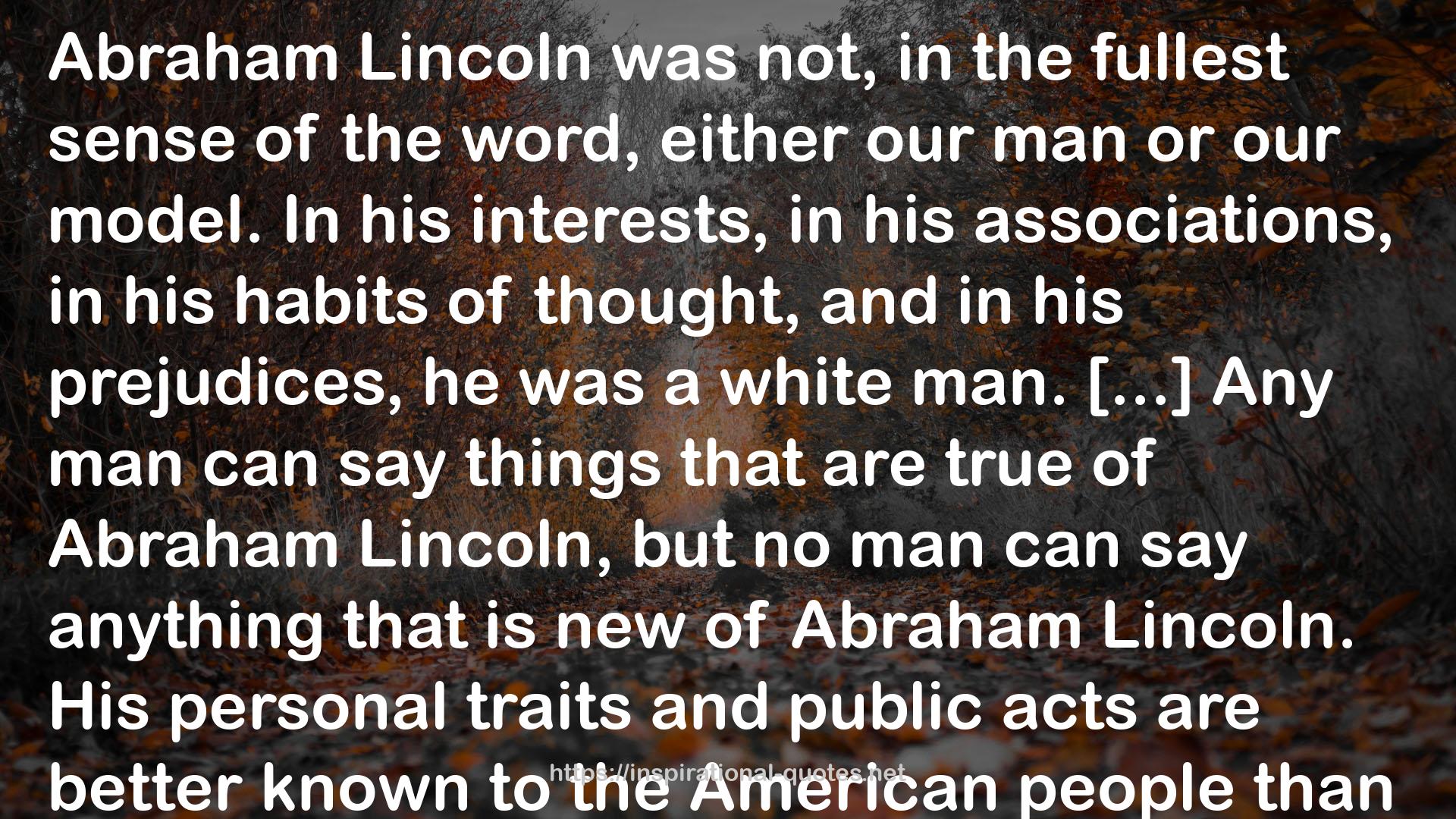1
" Abraham Lincoln was not, in the fullest sense of the word, either our man or our model. In his interests, in his associations, in his habits of thought, and in his prejudices, he was a white man.
[...] Any man can say things that are true of Abraham Lincoln, but no man can say anything that is new of Abraham Lincoln. His personal traits and public acts are better known to the American people than are those of any other man of his age. He was a mystery to no man who saw him and heard him. Though high in position, the humblest could approach him and feel at home in his presence. Though deep, he was transparent; though strong, he was gentle; though decided
and pronounced in his convictions, he was tolerant towards those who differed from him, and patient under reproaches.
[...] I have said that President Lincoln was a white man, and shared the prejudices common to his countrymen towards the colored race. Looking back to his times and to the condition of his country, we are compelled to admit that this unfriendly feeling on his part may be safely set down as one element of his wonderful success in organizing the loyal American people for the tremendous conflict before them, and bringing them safely through that conflict. His great mission was to accomplish two things: first, to save his country from dismemberment and ruin; and, second, to free his country from the great crime of slavery. To do one or the other, or both, he must have the earnest sympathy and the powerful cooperation of his loyal fellow-countrymen.
Without this primary and essential condition to success his efforts must have been vain and utterly fruitless.[...] Viewed from the genuine abolition ground, Mr. Lincoln seemed tardy, cold, dull, and indifferent; but measuring him by the sentiment of his country, a sentiment he was bound as a statesman to consult, he was swift, zealous, radical, and determined.
Oration in Memory of Abraham Lincoln. Delivered at the Unveiling of The Freedmen’s Monument in Lincoln Park, Washington, D.C. "
― Frederick Douglass ,
